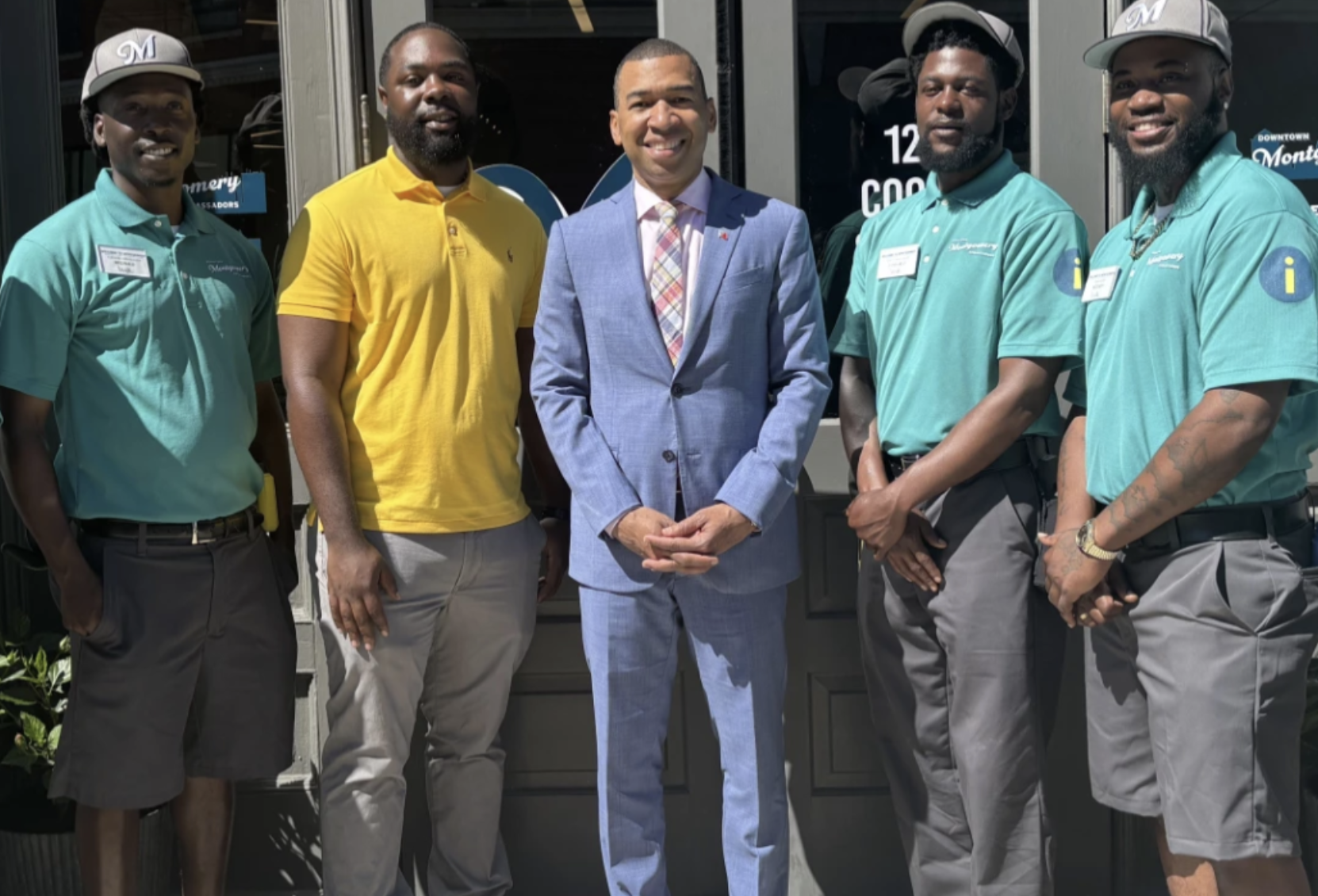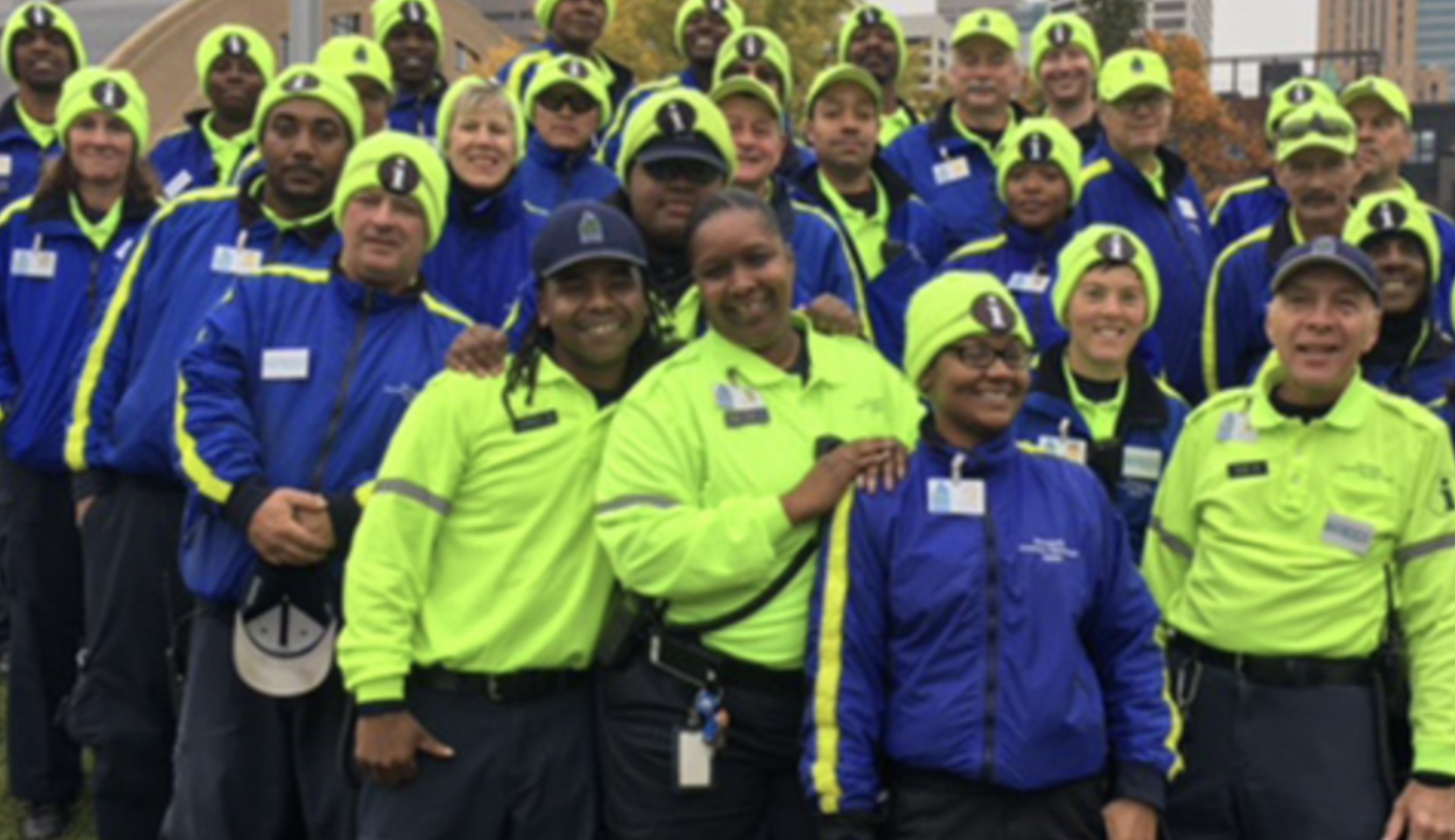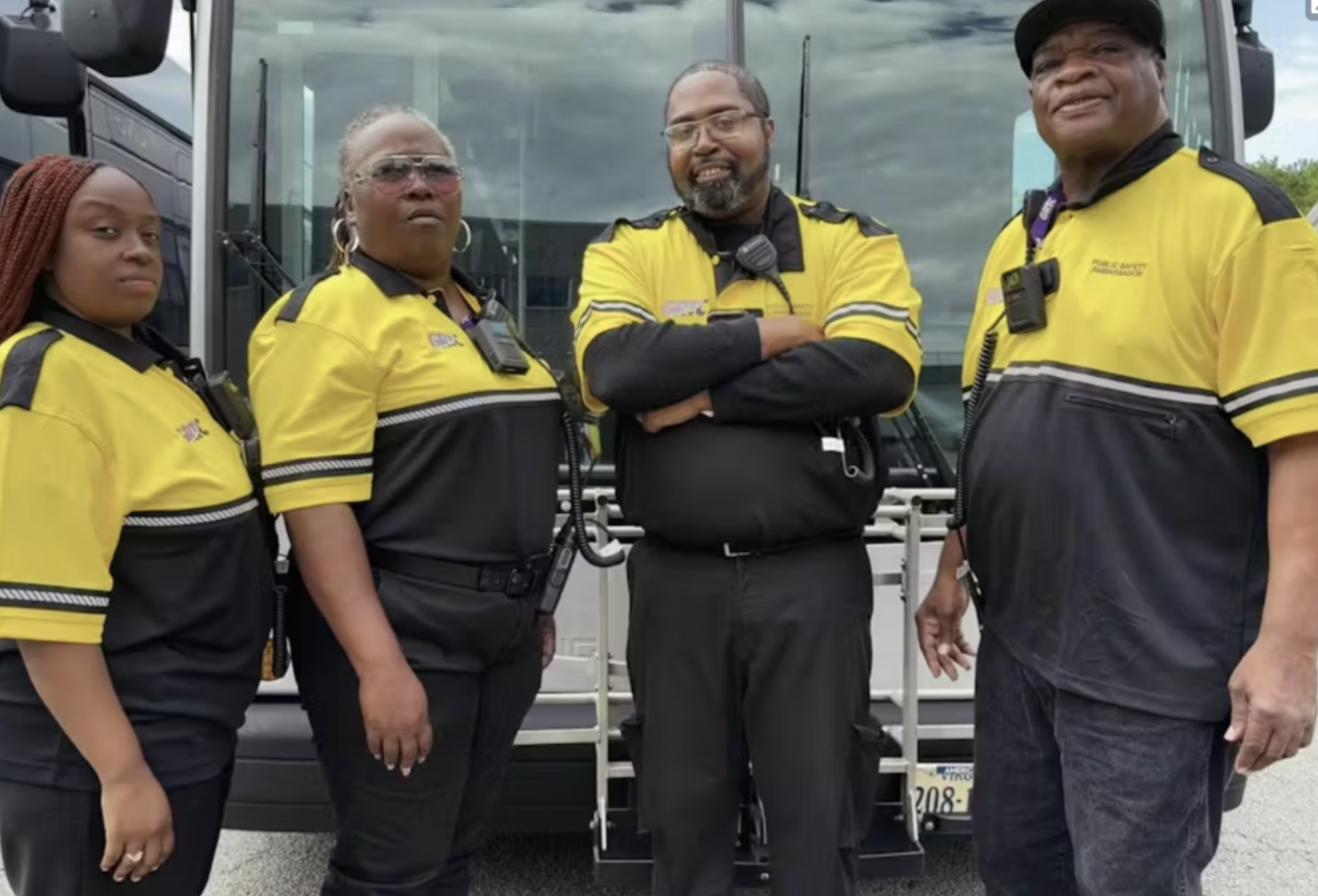What To Read This Week
1. Five Cities Launching Safety Ambassador Teams “To Help Restore Peace And Dignity To Public Life” In Cities.
In Seattle, a new safety ambassador team will start patrolling downtown’s Japantown, Chinatown, and Little Saigon “assisting small businesses, welcoming visitors, and fostering safer, more vibrant neighborhoods,” Mayor Bruce Harrell, a champion of the program, announced last week, Noel Gasca reported for Seattle’s local KUOW news.
Uniformed in highly visible, bright yellow vests, the team will patrol downtown seven days a week. Here are the team’s core functions, as the city detailed in its announcement:“Walk and watch over neighborhood blocks to ensure they are safer, cleaner, and cared for—while also providing a visible, welcoming presence by providing directions, assisting visitors, and reporting issues;”
“Assist the [downtown’s] small businesses by deterring disruptive behavior, responding to quality-of-life concerns, and helping business owners and entrepreneurs access city services and support networks;” and
“Offer de-escalation and engagement services to individuals… when residents or businesses encounter individuals in crisis. Rather than leaving businesses and residents to navigate these situations alone, ambassadors will act as trained responders to help restore peace and dignity to public life [downtown].
Here’s what business owners and local leaders are saying about Seattle's new program:
Downtown restaurant owner, Yenvy Pham: “This kind of investment in this community is what business owners have been waiting for… ‘what this means is that we’re able to have a safer environment for our staff, for our customers, and to kind of enjoy the neighborhood, to work in it, to hang out in it, have a few drinks, walk the streets and not have to worry about my public safety,” Pham explained to James Lynch for KIRO news.
Seattle Mayor Harrell: “With dedicated ambassadors on the ground, we are investing in safety, belonging, and visibility for one of our city’s most culturally significant communities. It’s about ensuring everyone in Chinatown, Japantown, and Little Saigon—business owners, workers, residents, elders, and visitors—feels seen, supported, and safe.”
Former Washington Governor Gary Locke: “...The police can’t do it by themselves, and so we have the ambassadorship program, pulling all the elements of this community together to make sure it remains vibrant."
Montgomery, Alabama’s new safety ambassador team launched this month with the goal of creating a “more welcoming, vibrant, and full of life for everyone who lives, works, and visits,” Robert Taylor reported for WVAS.
The team, composed of eight full-time ambassadors outfitted in bright green uniforms and gray hats, patrols 30 blocks in the city providing “safety support with a visible presence… environmental cleaning, hospitality, [and] business engagement.” The city has also created a real-time database and tracking system of the ambassador team so that “city leaders and stakeholders [have live] data” to “monitor [the team’s] progress block-by-block…”
In Asheville, North Carolina, for the Citizen Times, Sarah Honosky reports on the safety ambassadors that launched earlier this month downtown, a “central component of the district [that]... provide a highly visible presence, proactively engage with the public, provide directions and assistance, offer safety escorts … [and] connect members of the unhoused community to resources like the Community Responders, Community Paramedics, [and] homeless service providers.”
The ambassador team, trained in “de-escalation, mental health, first aid…[as well as] hospitality, maintenance,” have already collected “6,000 gallons of trash, removed over 300 pieces of graffiti and cleaned the exterior of 300 trash cans” downtown since their launch just weeks ago.
In St. Cloud, Minnesota, a new safety ambassadors team launched this month, “suited up in green jackets [serving as]... that extra set of eyes and ears in reporting and engaging with the community” 6-days a week, Teagan King reported for St. Cloud Times. Beyond their public safety function, the team also focuses on hospitality for local businesses, visitors and residents downtown, providing directions and connections to vital services; as well as maintaining order on the downtown streets, “keeping the area clean with services like garbage and graffiti removal, weed removal.”
In Portland, Maine, a new safety ambassador team has launched downtown as part of a larger public safety effort “to help tackle Portland’s homelessness crisis” by providing connection to vital services and shelter programs, Sam DeCoste reports for WGME News. Portland Mayor Mark Dion, a vocal supporter of the new ambassador team, explained that the team’s first priority is to help increase public safety downtown through community outreach and engagement, because “if you don’t feel safe, if you’re not safe, then nothing else really matters. Nothing else really works. It hurts the city.” The team, the mayor said, can be “reached by phone, or [through the] ambassador app… travels in pairs across the city, all day and night, year-round” providing “extra eyes and ears for the city to make it a cleaner and safer place.”
Related: In Richmond, Virginia, city leaders launched a Transit Safety Ambassador team assigned to public transportation services around the city “to reduce service disruptions, enhance security and maintain a supportive transit environment,” Mass Transit Magazine reported last week. The “public safety ambassador team…now fully operational… outfitted in black and yellow uniforms to provide a visible presence throughout the system,” with some of the safety ambassadors “riding buses, directly engaging with passengers” and other team members “stationed at the Downtown Transfer Station, one of the busiest hubs.”
2. New Poll: Voters Say Safety Ambassadors Serve An “Important” Public Safety Function, Allow Law Enforcement To Focus On Serious Crimes.
To gauge public support for Safety Ambassador teams as part of a city’s public safety infrastructure, Safer Cities recently conducted a national survey of 2,503 registered voters.
First, we defined safety ambassadors as “a highly visible uniformed presence at the street level, deployed along major streets, downtown areas, or residential neighborhoods. By serving as eyes on the street, safety ambassadors deter crime while also making residents safer.” Next, we explained the function that safety ambassadors can play in a city’s public safety infrastructure:
“Help people get home safely by providing a walking escort or a jumpstart;”
“Help people in crisis get the shelter, food and health care services that they need;”
“Receive training in first aid and overdose prevention and can save lives by administering Narcan;”
“Receive training in de-escalation and help calm minor disagreements before they require police assistance.”
We then provided participants with “reasons for implementing safety ambassadors as a public safety policy” that a city might consider, and then asked them to tell us “how convincing, if at all” each of those reasons are. Here are the three most persuasive arguments:
+61 Net Effective (78% to 17%): “The jobs that safety ambassadors do are important for communities. Having trained safety ambassadors help people get home safely at night, de-escalate minor disagreements, or connect people in crisis to shelter and services lets police officers focus on more serious public safety threats like solving robbery, rape and murder cases.
+50 Net Effective (72% to 22%): “It is far more expensive for a city to employ an armed police officer to serve as the needed ‘eyes on the street’ deterring offenses like shoplifting. Trained safety ambassadors consistently and competently perform the same role for less cost which allows the city to have more safety ambassadors—and therefore more eyes on the street—for the same budget.”
+41 Net Effective (68% to 27%): “Small businesses dealing with the threat of shoplifting need help but stationing armed officers in front of their stores creates an unwelcoming and intimidating environment for some customers. By contrast, uniformed safety ambassadors provide the same kind of highly visible deterrent needed to prevent theft without inadvertently creating a sense that the store is a dangerous place.”



